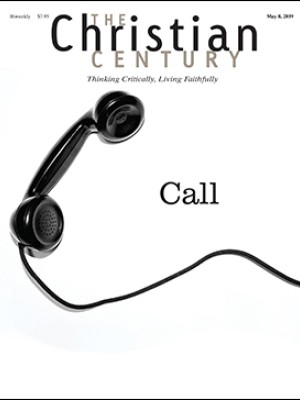May 26, Easter 6C (John 5:1-9)
Like a girl jumping double dutch, Jesus has perfect timing.
My preteen years in a black working-class neighborhood of Philadelphia taught me a lot of things. It was the art of double Dutch that taught me that timing is everything.
Watching and participating in this game, I learned how to know when it was just the right moment to enter into the jump ropes and to keep in step with movement, agility, and syncopated rhythm. I was never good at actually jumping into the ropes, but I could always be counted on to turn them. As I held the ends, I was able to create the magic moment of one rope going up while the other was coming down, two ropes crossing each other and allowing someone to enter and jump in the center only if they could make sense of the perfect moment.
I would watch girls count out loud or in their heads as they entered the ropes and tried to keep in step with fancy footwork. As I turned the ends, the expert jumpers seemed to know, intuitively, how to slide in between the two ropes like a dancer and stay on beat. It was as much about rhythm as it was about timing.
Read our latest issue or browse back issues.
When I read John’s account of the ill man at the side of the pool at Beth-zatha, I am as fascinated with this man’s time spent, time wasted, and time perceived as I am with Jesus’ timing in his life. As a sick person with limited mobility, the man must have counted the days and years that went by with no change in his situation. Thirty-eight years is a long time to be stuck in one position.
I wonder about the amount of time that went by as he imagined who he could count on and how his life would be different if he could just get to those healing waters. Day after day, week after week, year after year, his thoughts of a calculated move toward healing were always interrupted. I can imagine people getting in his way of getting close to those healing waters. I can imagine him being discouraged and giving up. I can imagine him feeling like time was just evaporating as he remained stagnant and siloed in that position.
For him, time must have been torture—a mockery. With each new day and each new hour, he was reminded that nothing good was going to happen for him.
Then Jesus comes on the scene. With the clock ticking for this immobilized man, Jesus does not focus on the amount of time the man has been stuck. Jesus is not concerned about the amount of time wasted or the time spent in this one position for 38 years. This man has been landlocked on a mat as if frozen in time. Now Jesus unlocks a timeless moment with him. Jesus goes right to the heart of the matter, simply asking, “Do you want to be made well?”
I wonder if time stands still for this man who has been waiting for so long. With one question in a moment’s notice, Jesus wipes away every excuse, every barrier, and every misperception this unnamed man has had concerning his own situation. Jesus, like a seasoned city girl who knows just the right moment to enter the fast-moving jump ropes and demonstrate her skills, seizes the opportunity. It is a miracle that the man is able to take up his mat and walk after being incapacitated for 38 relentless years. It is also a miracle that Jesus invites him to see the impossible and to participate in his own healing and renewal.
As the story comes to a close, we get one more take on the perfect timing of Jesus. This healing takes place on the sabbath, a time when Jesus often gets in trouble for healing, feeding, and caring for others. While others may be fixated on the clock, Jesus is fixated on the moment. He is opening the hearts and minds of those around him. He reminds them that even on a day of rest, God’s transformative power is always at work. God’s redemptive power is always ready to spring forth. It’s kairos time rather than chronos. It’s a sacred moment that can’t be calculated but can be cultivated.
Only the divine can cultivate a kairos moment in our lives. This is what Jesus has done for the man who was afflicted for 38 years, and it’s what Jesus does for us time and time again. The invitation for the sick man to desire healing and restoration is a timeless invitation. Christ is among us, ready to seize the moment to ask if we desire to be well. This is God’s hope: for us to be made whole, to be reconciled to our creator, and to be reconciled to one another.
It doesn’t matter how much time has passed, and it doesn’t matter if the barriers we see are real or perceived. Christ will find just the right moment to speak to us—in the voice of another person or through a song, a gentle breeze, scripture, art, or something that challenges the mind and convicts the soul. Christ has the power and precision to know when to remind us of the invitation to want to be made well. Each time we answer yes to the grand invitation to wholeness, we are commanded to delay no longer but to get up and walk in a way that is renewed with each new day.





